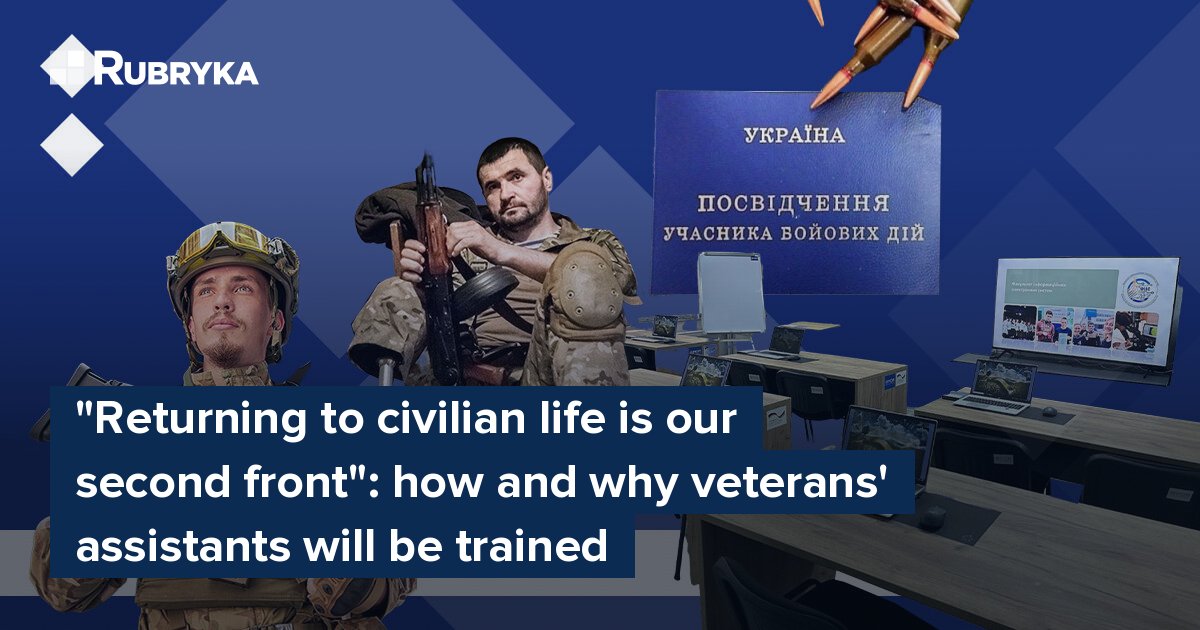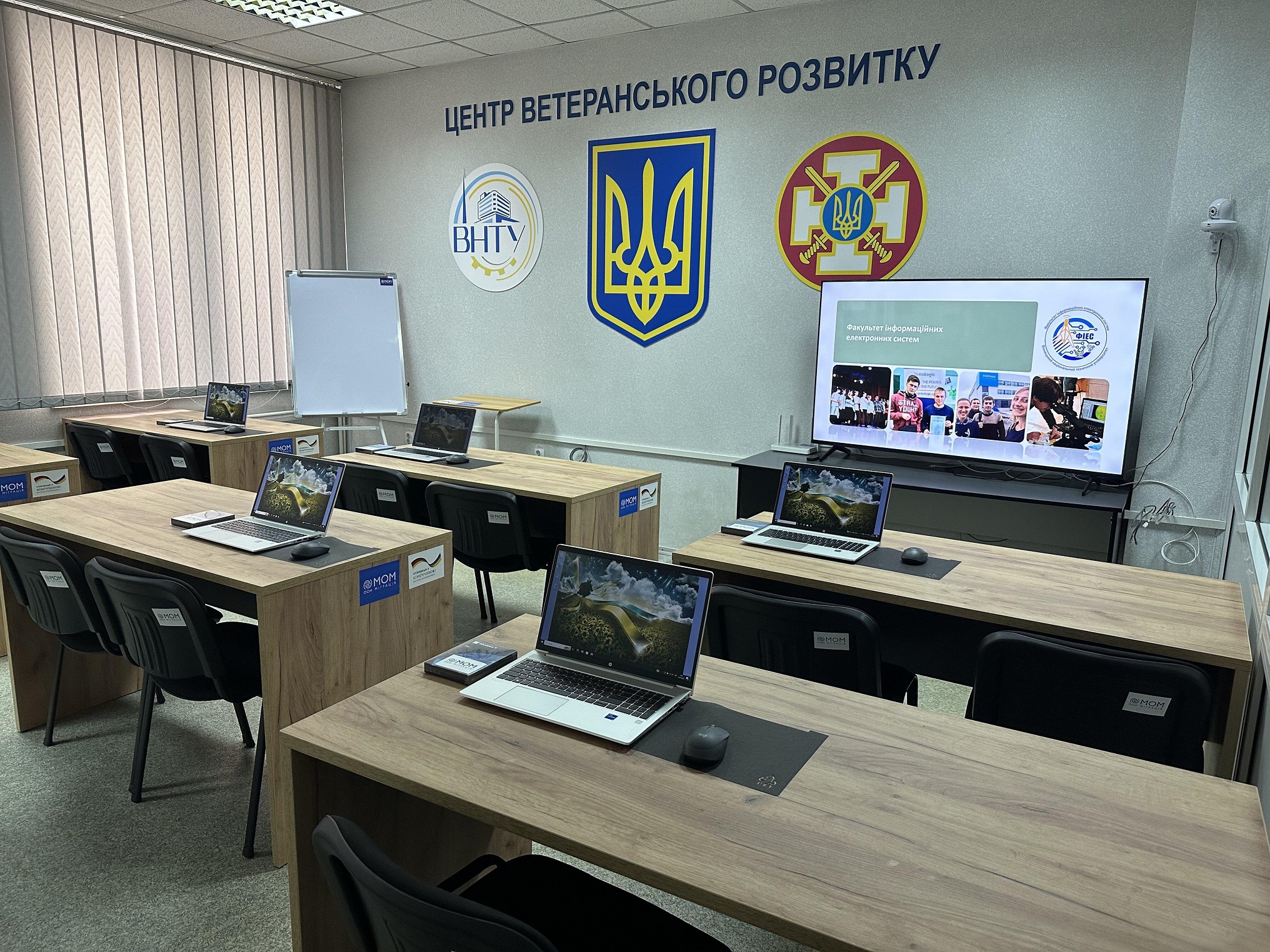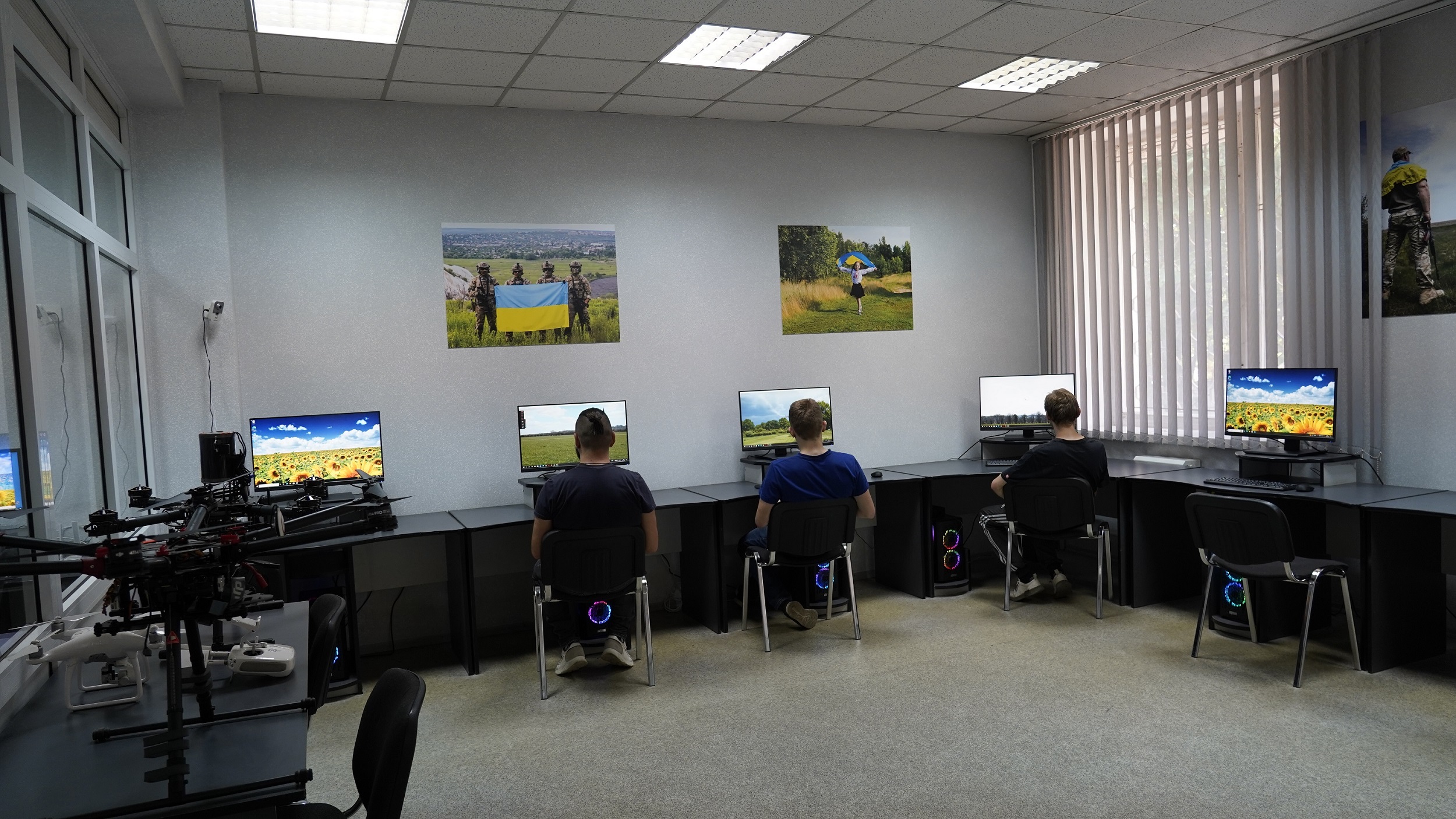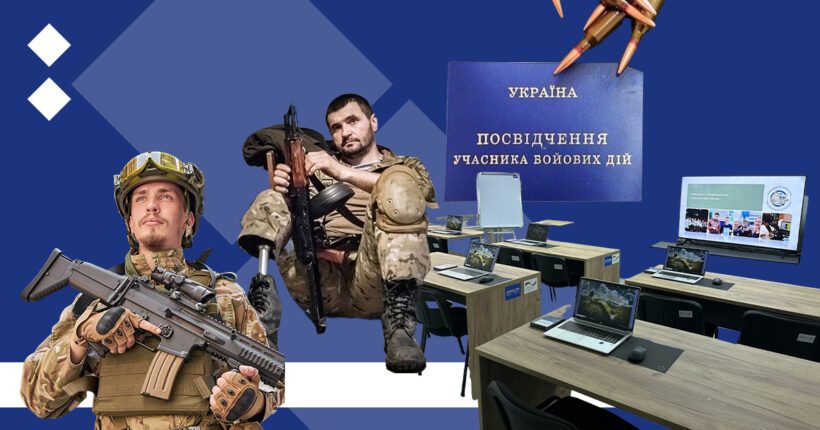
What is the problem?
Demobilized military personnel, especially soldiers who became disabled as a result of the war, need dignified treatment in society, adaptation to civilian life, and, in fact, a new acquaintance with their family. After all, they will never be the same again. At the same time, Ukraine is already experiencing a severe shortage of qualified personnel, which will intensify when the full-scale reconstruction of the destroyed country begins. How are these two challenges related to each other, and how to solve them comprehensively?
What is the solution?
Employment is an essential factor in the reintegration of soldiers and their effective return to peaceful realities and socialization. The Ministry of Veterans Affairs realized this and has created an educational ecosystem for veterans at various levels — from short-term training to full-fledged courses and training programs for specialists in working professions, as well as the incubation of veteran businesses and the opening of new educational horizons.
Such a new profession, which at the same time will provide permanent employment for former servicemembers, is the mission of a veteran's assistant in service offices in communities. They will be prepared by veteran development centers, such as the pilot ones in Dnipro, Vinnytsia, and the most recent one, Lviv. As soon as the veterans' assistant institute expands to the entire state after this year's testing in four regions, it will be possible to talk about the appearance of recruiters who will find individual solutions for employment or retraining of their fellow veterans in their veteran community.
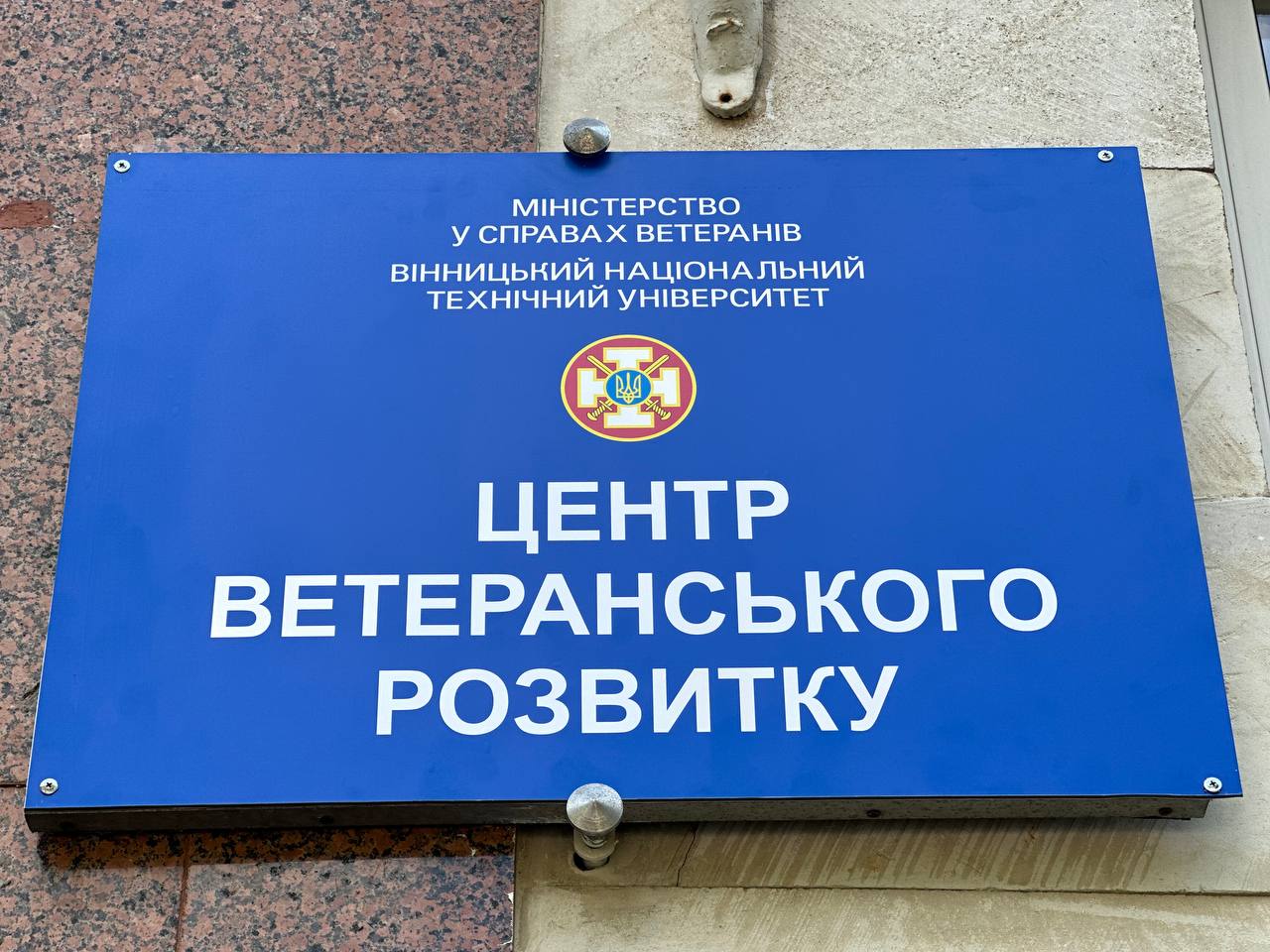
Center for veteran development.
A space for training of veteran assistants
This is a large space divided by transparent walls into three zones of classrooms. All of them are inclusive — the tables can be adjusted in height and angle of inclination. The classrooms also have all the necessary equipment — laptops, monitors, printers, and projectors. Such classes are provided by the International Organization for Migration, an active donor and partner of the Ministry of Veterans Affairs.
First Deputy Minister of Veteran Affairs Oleksandr Porhun noted that veteran development centers will act as critical points of support for veterans and will include professional adaptation, career counseling, vocational training, courses, and psychological support for veterans and their family members. He also said that in the future, when state universities create a network of such centers, veterans will be able to get professional education not only in their region but also in other cities and master the specialties they need. Such an educational ecosystem will make it possible to acquire various professions according to the direction that the future veteran prefers after demobilization.
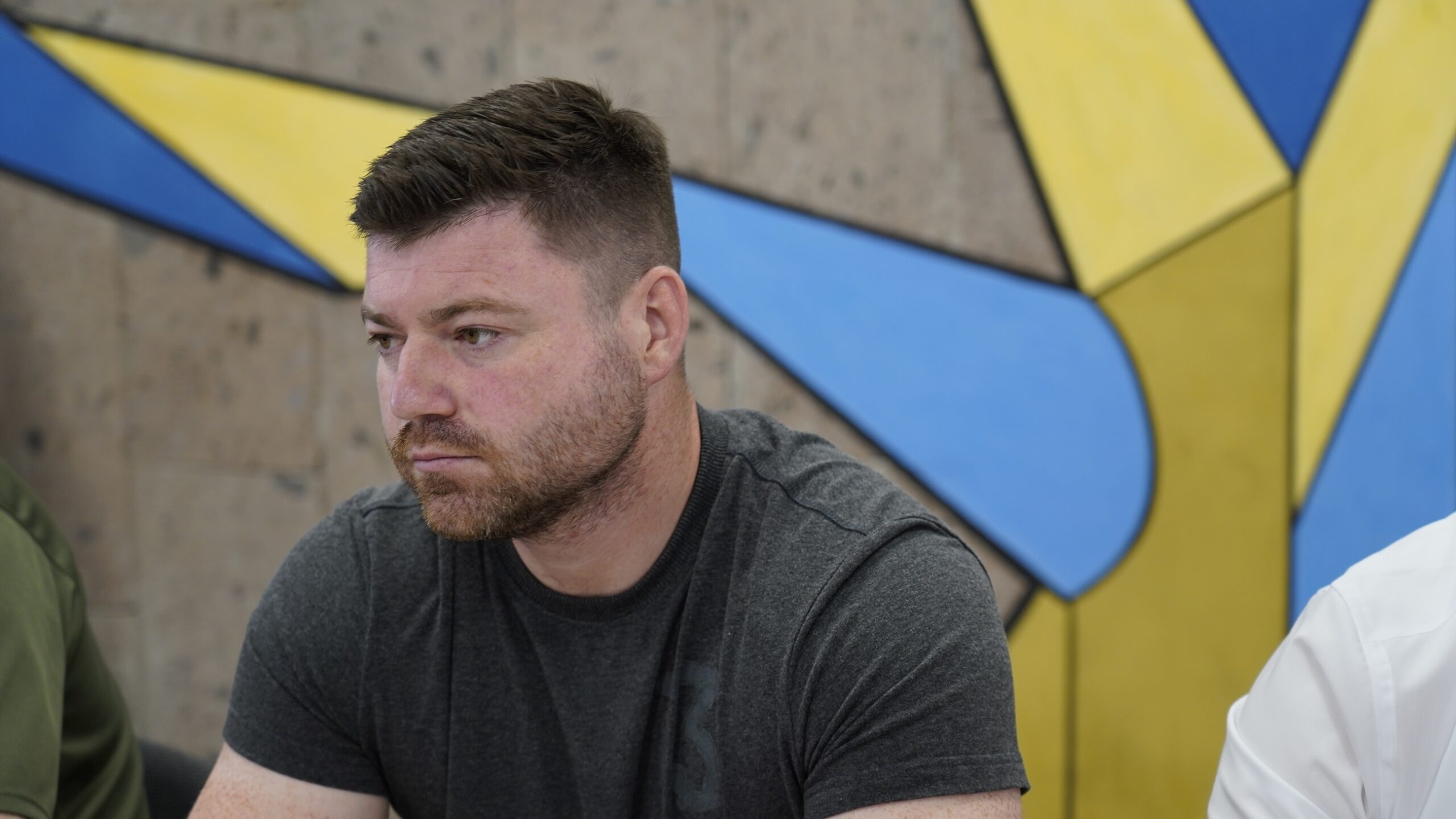
Oleksandr Porhun.
How returning from war to a new rescue mission works
Rubryka spoke to potential veteran's aide training course participants, both of whom had been in combat and suffered disabling injuries in 2022. They got over themselves, underwent a long rehabilitation, and now decided to help their fellows adapt to a different life.
Junior Sergeant Oleksandr Markov was the commander of the communications platoon of the 110th separate mechanized brigade named after Corporal General Mark Bezruchko. He graduated from the technical school of electronic devices and then the Vinnytsia Pedagogical University as a teacher of labor training. He had been fighting since the beginning of March 2020 before being injured in the Avdiivka region.
"The enemy's tanks left, and they started firing with direct fire. I lost one leg, and the calf was torn on the other. My comrades also survived, but they were badly hurt. Unfortunately, a Russian S-300 missile hit their dugout this year, and everyone died," Markov sadly says.
The sergeant was in a wheelchair for three months and underwent a lengthy treatment. Many soldiers in similar situations are depressed because of the thought that no one needs them. "My acquaintance from Zaporizhzhia was so on the edge that if we didn't talk to each other, it would be much more difficult for him. Now, he sees his future clearly. It is clear that my comrades need support, and I want to be useful to them and, of course, to myself. I support the initiative of the Ministry of Veterans Affairs since many of the same wounded soldiers will not know where to turn and how to live with all this later," Markov shared with Rubryka.
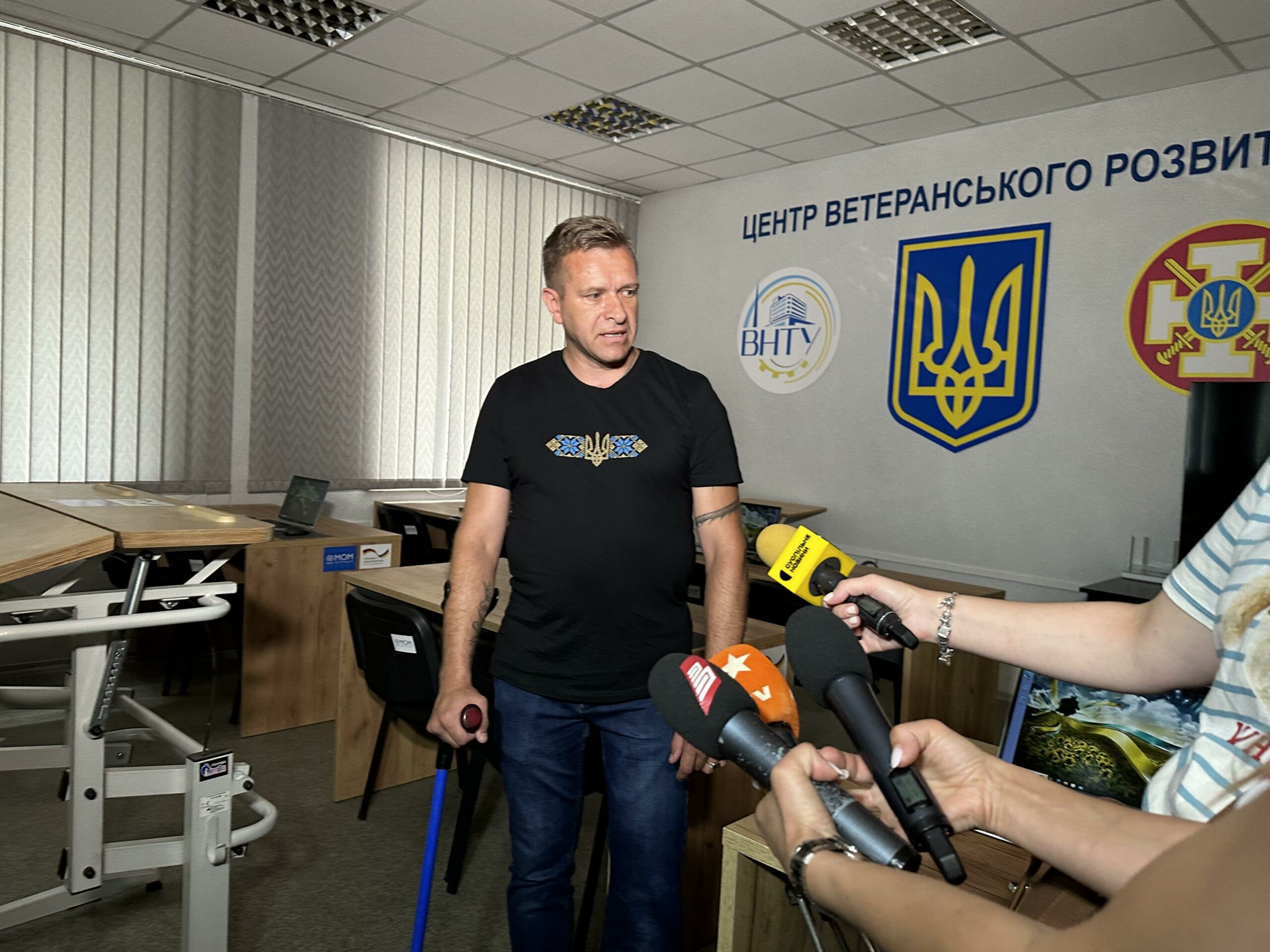
Oleksandr Markov.
Senior soldier Serhii Zagorulko was wounded near Mykolaiv in March 2022, lost part of his leg, and was treated for almost eight months. He has been in the army since 2014. Then, three columns of Russians marched on their unit. The Ukrainian army set fire to the gas trucks of the ruscists and later destroyed enemy tanks and prevented the enemy from entering the city. Zagorulko is a financier and banking specialist by trade. As a candidate for veteran's assistant, he will undergo proper training within the framework of the pilot project.
"Our second front is to ensure a problem-free return to a peaceful life for our comrades. I want to help employ defenders, which is crucial for them because most of them want to be among people, to work. But the most important thing, and I went through it myself, was for them to bypass the bureaucratic circles they had to go through for information and decisions. We will be able to tell you how to arrange everything and what nuances to pay attention to," says Zagorulko about his future mission.

Seri Zagorulko.
How a pool of candidates for veteran's assistants is formed
After selection by the commissions already established in the regions, candidates for the positions of veteran's assistants will be sent to training. The commissions, which have their own secretary and chairman, include representatives of territorial communities, specialists of regional-level war veterans' offices, psychologists, representatives of the Ministry of Veterans Affairs, and civil society institutions.
Rubryka asked a member of such a body that already works in Vinnytsia about the transparency of the work of selection commissions.
"At first, commission members see depersonalized data of persons who correctly filled out and submitted an application for participation in the pilot project and provided confirmation that they are veterans or family members of fallen soldiers. And a "wife of someone from the city council" a priori cannot be included in this selection," explains Yevheniia Hryhoruk, deputy head of the department for war veterans and head of the war veterans assistance department of the department of Social and Youth Policy of the Vinnytsia region.
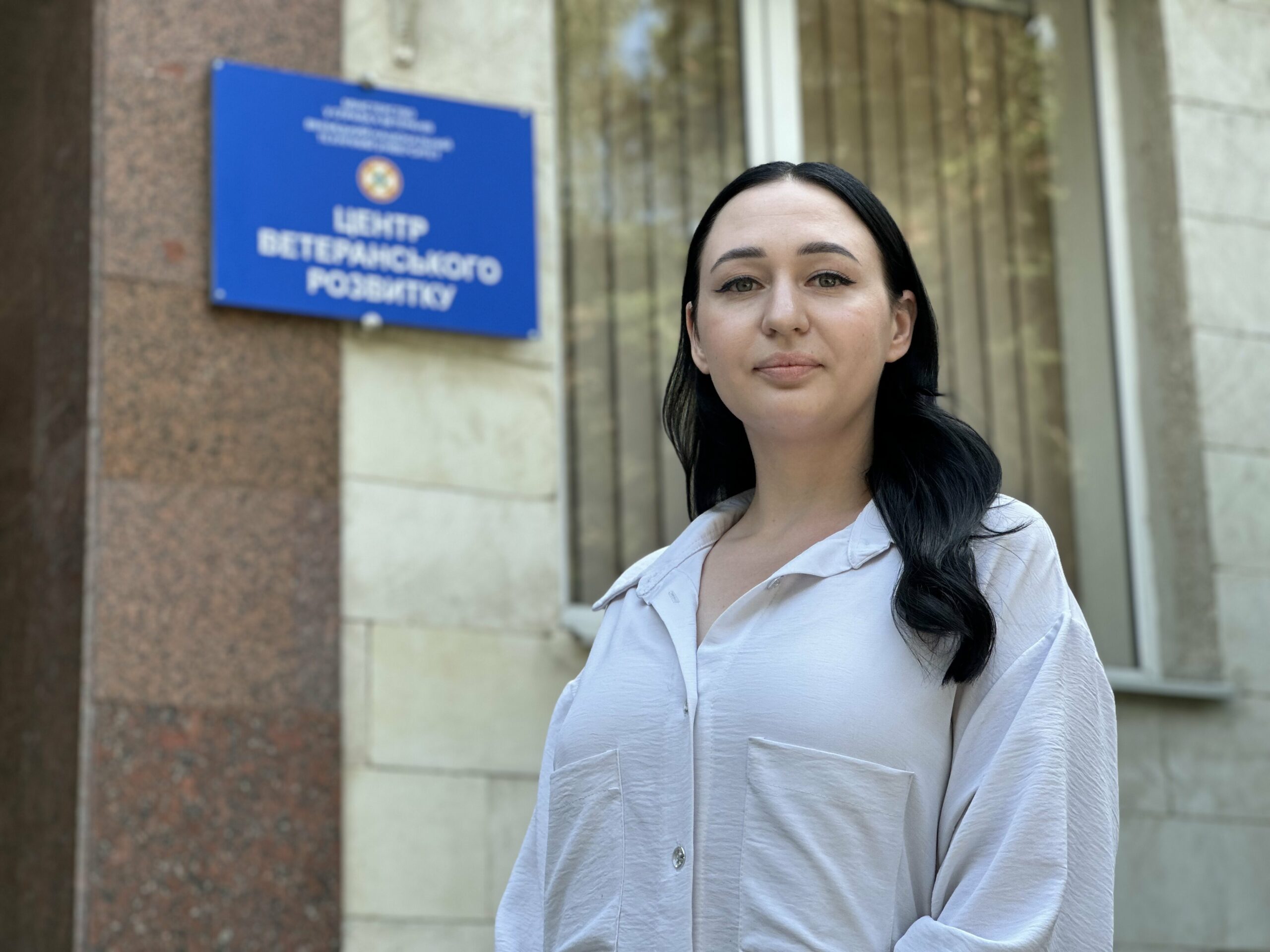
Yevheniia Hryhoruk.
The main task of the commissions during interviews with candidates for veterans' assistants will be the personalization of applications. That is, conducting interviews already after the preliminary processing of questionnaires.
"The commission does not care about candidates' knowledge of legal acts or the specifics of the work of specialized structures, the principles of their interaction. For us, the most important thing is the internal motivation of a person who applies for the position of veteran's assistant since they will be taught the appropriate methodology after selection," continues Hryhoruk.
Candidates will pass a test on empathy, internal motivation, stress resistance, and motivation. Here, according to the interlocutor, these are the main criteria and critical arguments for the commission because working with each veteran and their family members is unique. In each case, there is an individual story that should be considered and advised on. Therefore, the psychologist will have almost the last word in the selection.
Hryhoruk noted that the commissions are starting interviews, the work schedule is ready, and the veterans will be given an initial understanding of what they will be doing in the future. The methodical recommendations prepared by the Ministry of Veterans and the established evaluation scale will help with this work.
Photo: Vitalii Sudarkin



